Rescued family share story of survival in hope it can help outback travellers in the future
The dangers of the Australian outback hit home for one family who were recently rescued from remote South Australia, and they have warned others on how to avoid their fate.
SA News
Don't miss out on the headlines from SA News. Followed categories will be added to My News.
Becoming stranded in the Australian Outback forms the script for many Hollywood movies – but the danger of the dry, arid and remote landscape is far from fictional.
The raging sun and dangerous wildlife can have fatal consequences and, tragically, it did this week.
Roxby Downs couple Dylan Stuart, 29, and Danika Thompson, 24, became bogged in their four-wheel drive near Junction Dam on the Stuart C reek Station – 90km north of their home town – last Saturday.
Mr Stuart rode off on a motorbike to seek help but he never returned and his body was found a few days later.
For West Australian Orios Zavros, news of the tragedy hit him like a ton of bricks.
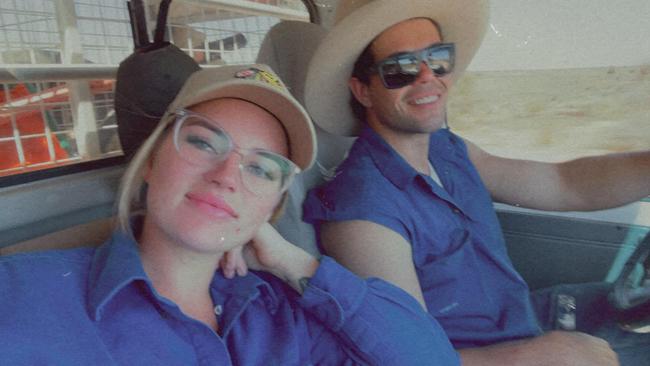
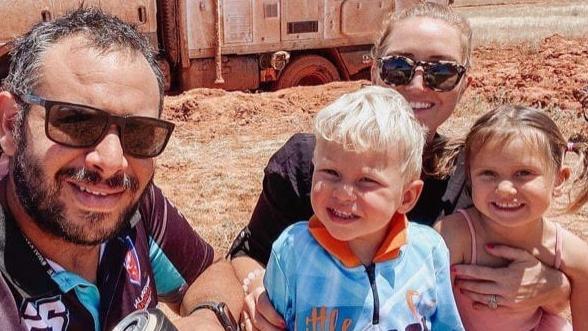
“I’m a pretty emotional person at the best of times but I really struggled when I heard about this,” Mr Zavros said.
Mr Zavros, wife Lindsey, and children Zoe and Zane found themselves in an eerily similar situation in November, when their camper truck became bogged in South Australia while crossing the Simpson Desert.
“For it to happen again, and for that poor young lad to lose his life, it’s just heartbreaking,” he said.
Mr Zavros and his family dug through mud for two long days in an attempt to release their vehicle but their efforts were in vain.
It was a $350 personal locator beacon, which they decided to activate on the morning of day three, that saved their lives.
“If we didn’t have that beacon, would they have found us in time? Who knows,” he said. “We copped a lot of criticism from people for setting it off just because we were bogged but people don’t realise, we were in the middle of nowhere.”
Four hours had passed before the family finally heard a plane overhead.
“The authorities dropped us a satellite phone and we were able to let them know that we were all safe,” Mr Zavros said.
He said the ordeal was worse for his parents.
“They knew we were in the desert so when police told them we had let off a distress signal, they had the agonising wait to find out if everyone was safe,” he said.
For the next five days, the authorities delivered supplies to the Zavros family, while they formulated a rescue plan.
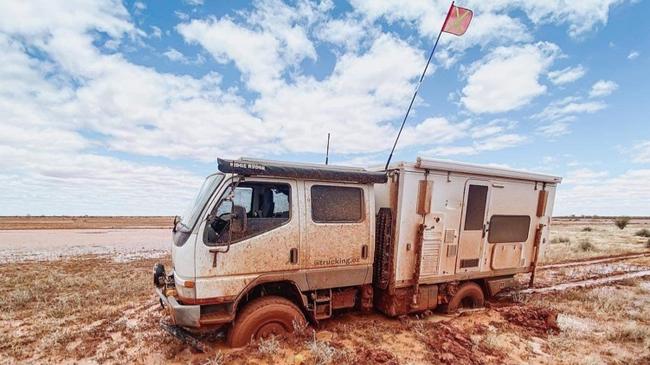
With the weather expected to heat up over the coming weeks, that plan was initiated.
“We thought we might have to wait it out for a few weeks until it dried out but because there was a bit of a heatwave coming through, they winched us out,” Mr Zavros said.
“It was bittersweet because we knew our world had changed. We weren’t going to be camping full-time anymore.”
Mr Zavros said he really struggled with the negative commentary on social media in the aftermath of the rescue.
“Don’t get me wrong, there was a lot of support out there but some of the stuff was really hurtful,” he said.
“The same sort of negative stuff is being directed at the family of the young man this week and it’s mostly coming from people who have no idea what it’s like to find yourself in that situation.”
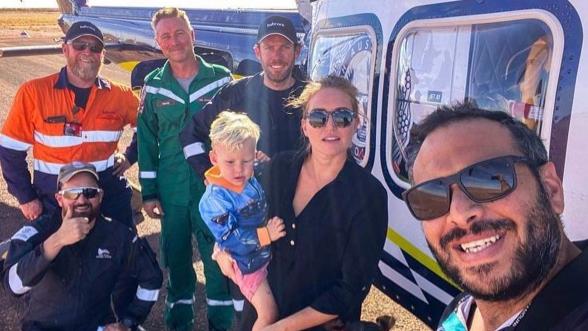
Mr Zavros said “every possible option is on the table” when you become that isolated.
“When the authorities say stay with your vehicle it’s for a reason but I’d be lying if I said leaving to find help didn’t cross my mind,” he said.
“We had a little electric scooter and we were only about 100km from civilisation. My wife shot it down pretty quick, it wasn’t worth the risk.”
In the 12 months to the end of February, SA Police’s STAR Group had co-ordinated 12 search or rescue operations in remote locations.
Various emergency services agencies, private and commercial aviation operators and landowners were called upon to help in those search efforts.
William Creek-based charter pilot Trevor Wright said he found himself jumping into his plane for a search about three to four times a year.
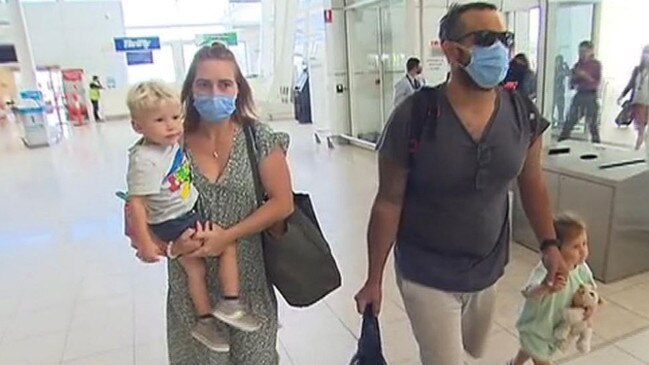
He said the number of incidents was only going to increase.
“As borders open up and tourists return, we are going to see numbers in the Outback like we’ve never seen before,” he said.
“There will be a spike in these sorts of incidents because there will be all sorts of demographics of people crossing those Outback tracks.”
Mr Wright said the next elected South Australian government needed to urgently address lack of telecommunications.
“When you add up what it costs to conduct these sort of searches and the psychological toll it has on people, then I definitely think it’s meeting a public need,” he said.
“There needs to be more education and the tracks need to be regularly maintained up to standard.”
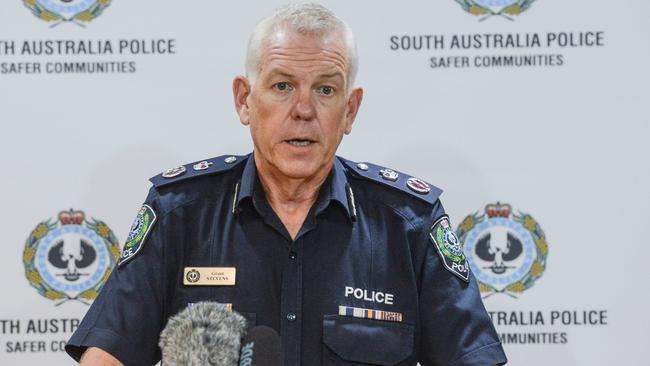
Police Commissioner Grant Stevens said there was an “element of preparedness” required to travel through remote parts of South Australia.
“We always encourage people to be as prepared as possible and tap into the up-to-date relevant advice in relation to the conditions they might be entering,” Mr Stevens said.
With their camper truck returning to Western Australia last month, the Zavros family are heeding that advice as they plan their next adventure.
“It’s opened my eyes a bit and there are certainly a few things I would do differently,” Mr Zavros said. “Monitor the weather a bit better and rent or buy a satellite phone are just a few examples.”
Mr Zavros said he felt compelled to tell his story after hearing of this week’s tragedy.
“If we can get any message out there at all and it can save one person, then that’s great,” he said.





